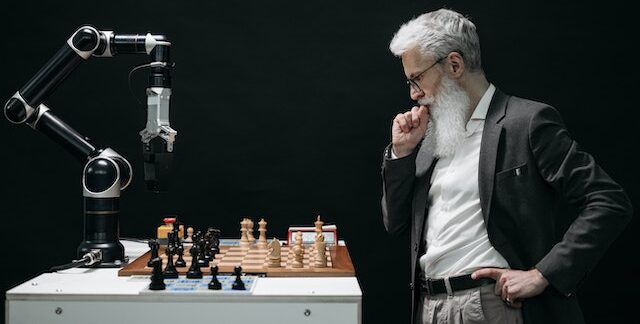The Future of Artificial IntelligenceThe future of artificial intelligence (AI) is a thorny issue. Many leading AI researchers believe that superintelligent machines will eventually take over human society. In other words, they will permanently alter the way humans live. But what exactly does this mean? We will soon learn more about the future of AI. To understand what this technology may mean for society, let’s look at the current state of AI.
The science behind AI involves studying the methods for making machines intelligent. In its simplest form, intelligence is the ability of a computer to perform the right action based on its environment. For example, an artificially intelligent robot will do what is most likely to achieve its goal while maximising its utility. Artificial intelligence involves planning, reasoning, perception, language understanding, and robotics. These technologies will be crucial in our daily lives.
AI will become more widespread and will have a profound impact on a variety of industries. It will replace human employees in many jobs, including those that are repetitive, but high-level. In fact, companies like Amazon are attempting to teach their employees new skills by offering them money to train for other jobs. But if this technology is not implemented correctly, the industry will be left unprepared. Then again, this will have a profound impact on businesses selling products.
There are two primary types of AI. Reinforcement learning and generative adversarial networks. Reinforcement learning deals with rewards and punishments, while generative adversarial networks let computers create. AlphaGo Zero is a great example of this method. Despite its potential, this type of AI is very slow to develop. However, it could be the future of AI. The question is whether it will be useful for humans or not.
For now, we know a lot more about AI. For one, a non-corporeal model is a major problem. An intelligent agent cannot experience its surroundings without a physical body. As such, abstract representations of what the surroundings look like are useless, unless they are accompanied by symbolic representations of what they perceive. And this is true of symbolic AI. It’s not clear if symbolic AI will take over, but we will see it eventually.
When AI systems are fully operational, they will reduce the need for humans in many jobs. For example, a machine may take over customer service roles or even financial tasks. The automation of such jobs is a big advantage for organisations, and may even reduce the need for workers in the service sector. It is also possible for AI to reduce the overall cost of operations. Ultimately, this technology can help businesses save money while enhancing job security.
Some fears about AI and its potential to take over human jobs are understandable. The future of AI may have some negative effects on society. Some fear that AI will increase the amount of wealth and income in fewer hands, while others say that it will promote collaboration and connect producers with customers. It may also help small groups of people work independently and reduce their dependence on large corporations. However, it’s up to us to decide how we use it.
